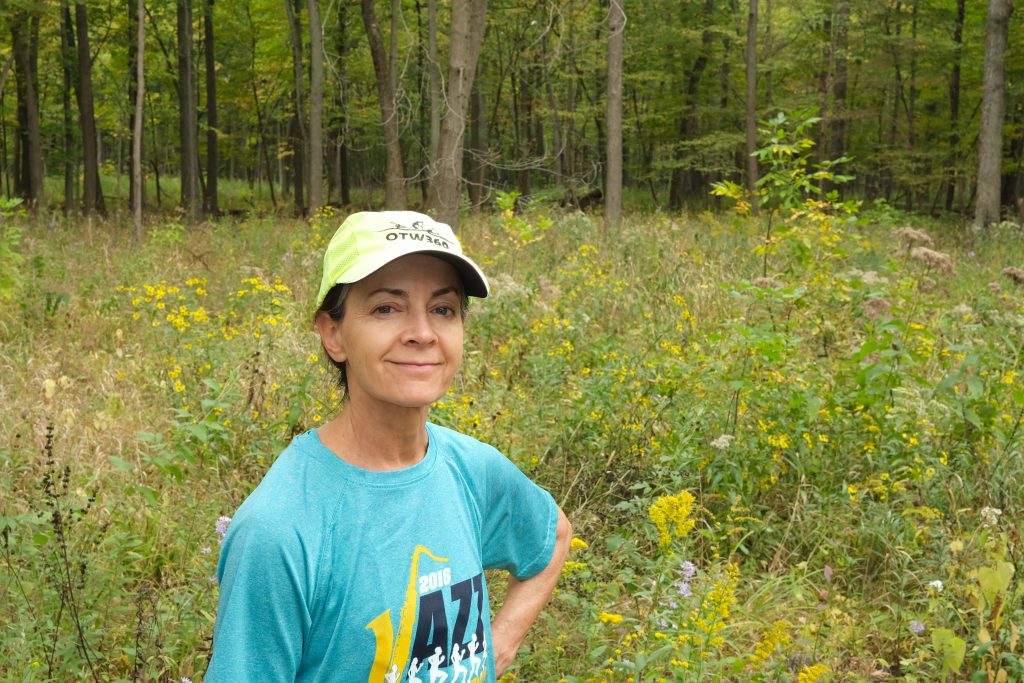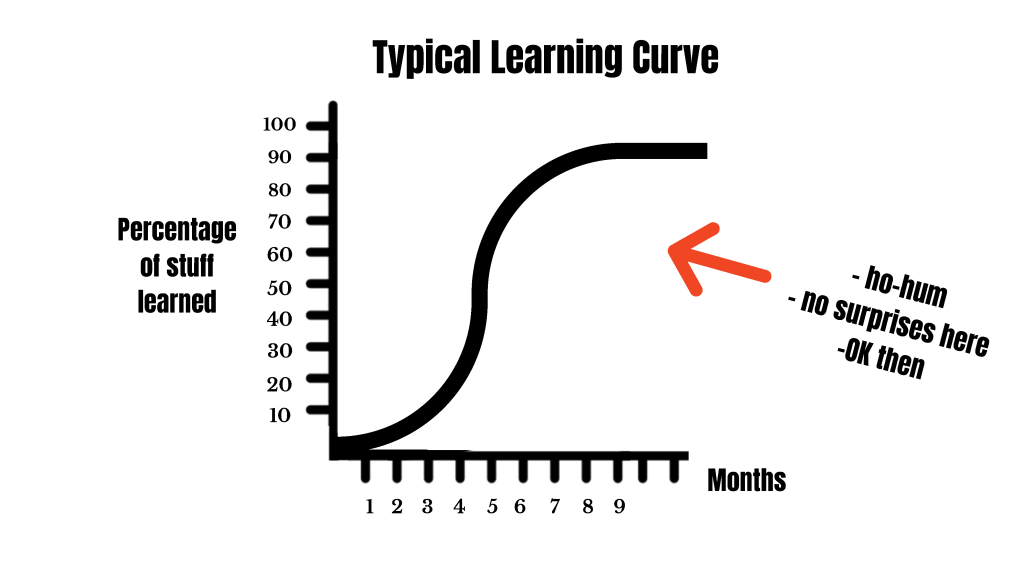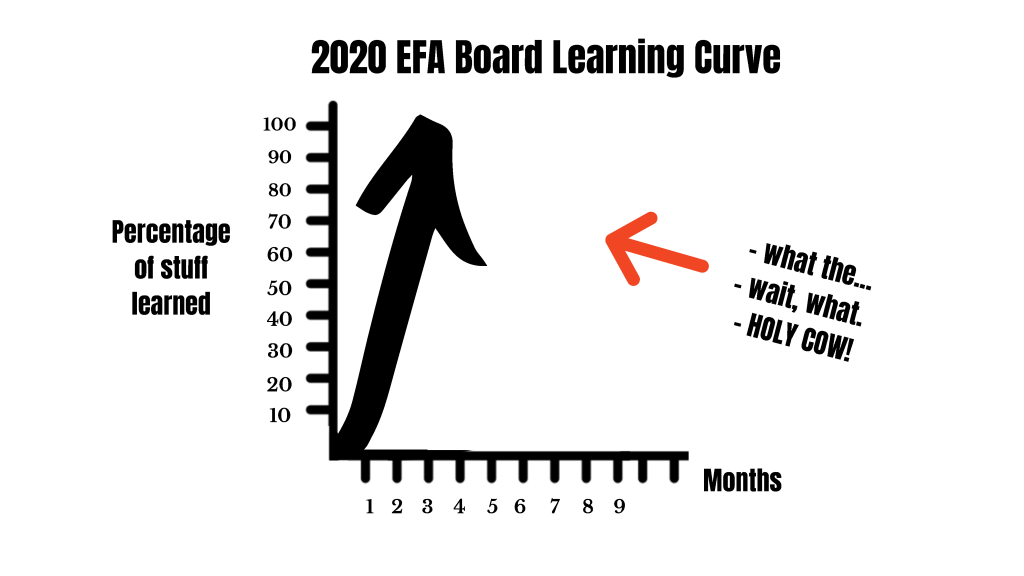A Newbie Joins the EFA Board: One Member’s Perspective

Shortly after I left my full-time editing job to return to freelancing five years ago, I joined the Editorial Freelancers Association (EFA). Already feeling a bit isolated in my home office, I was eager to become part of an organization that offered freelancers “a network for mutual support and advancement . . . recognized throughout the publishing industry as the source for professional editorial assistance,” as its website stated.
Before long, the EFA started to feel like my place and my people. Some clients found me through the Membership Directory, and I found others by pursuing Job List leads. Some of the Discussion List (DL) threads were incredibly helpful as I navigated a new world of price setting, contracts, and scope creep. As time passed I took classes and webinars, attended Chicago chapter meetings, and eventually volunteered at the recent EFA conference in Chicago.
The EFA Board of Governors was the last thing on my mind as I busily went about my freelance business. I knew people ran the organization, of course, but I never paid them much thought as I blithely benefitted from their hard work. My conception of a board was of a vague, amorphous, semi-omniscient presence. What did boards do? Why did they do what they did? I had no idea, really.
Last spring, I contacted some EFA members about an article I was researching on freelancing and ageism. One of them was EFA Board member Joy Drohan. After some emails back and forth, Joy asked if I had considered joining the Board of Governors. I hadn’t, I told her. “I can tell you more about it if you’re interested,” she wrote. “I’ve found it very rewarding.”
Somewhat to my surprise, I did find myself thinking about the EFA Board, and what joining it might mean. I was interested, I decided. Joy and I set up a time to talk, and she explained what a Board member at large does—how they represent member interests, assist other board members and committees, and generally promote the EFA. She also described the EFA’s Board election process. I had many questions, and Joy answered them all patiently.
I spent the next week or so thinking about running for the Board. I liked the idea of giving back to an organization that had helped me so much. What I didn’t like was having to campaign for something. I briefly pictured myself as an old Tracy Flick (played by Reese Witherspoon in the 1999 movie Election) ruthlessly running for office. Yikes! But run I did, and I found the EFA Board election process much more collegial than Hollywood. Basically, all I had to do was write a short statement summarizing my experience and interest in serving. By June, I was happy to find myself a member at large.
Of course, there was a learning curve. I expected one like this:

My learning curve was a little steeper:

***
In this past year I learned not only the nuts and bolts of board governance, but experienced how EFA leadership responds to a crisis. While our nation faced the most challenging time most of us have ever experienced, the EFA Board faced challenges within the organization, and calls for change. I was grateful to be able to participate in some important work, even if I sometimes felt stretched between my board commitments, freelance work, and home life.
Was it worth it? Absolutely.
Here’s what joining the EFA board enabled me to do:
- Meet fellow members and make new connections
- Fully understand how the organization works
- Participate in shaping and implementing policies
- Learn about effective leadership
- Benefit from Equity, Diversity, and Inclusion (EDI) training
- Strengthen my résumé
Of course, I already knew some of my fellow freelancers at the EFA. Some I had contacted off-list after reading something they posted on the DL. Some I had met at gatherings of the Chicago chapter. Others I had met at the 2019 conference in Chicago. When I became a Board member, I quickly grew to know my fellow governors. I also met and speedily grew to like and respect the hardworking EFA staff. And I met more EFA members through various Board-supported activities, such as our virtual holiday party.
The monthly meetings, all conducted virtually, were daunting at first. Everyone seemed so knowledgeable, and there I sat, semi-bewildered, staring blankly at all of those confident talking heads in my Zoom thumbnail view. Fortunately, they belonged to helpful and nurturing people who were only too happy to answer my questions and welcome me into the group. Christina Frey and Bill Keenan led the way as co-executives as we Board members received committee updates and discussed new business. With their help, and that of EFA staff, I began to understand how the Board supports and guides the EFA.
When the DL became a flashpoint of controversy last summer, I got a firsthand look at how the Board works to address a crisis. We Board members didn’t always agree, but we worked hard to understand one another and to take steps to address the problem, including hosting the January Town Hall and developing a DL Code of Conduct. We’re still working on the DL; one thing I have learned is that effective policies take time . . . though they have to move forward, however incrementally.
Last year the Board voted to require EDI training for all Board members and staff. I considered myself fairly sensitive about issues of race and gender, but during these sessions I discovered that I had plenty to learn. I consider it a perk of Board membership that EDI training is now required, and it shows how seriously the EFA takes these issues.
At first I hesitated to add my Board affiliation to my social network platforms and my website. I didn’t want to brag. Then I realized how stupid that was: There is no reason I shouldn’t mention a role I’m proud of in my professional communications. Though I’ve never had a client comment on my Board affiliation, I think it enhances my credibility as a dedicated editor and freelancer when they see that I serve on the EFA Board. It sure can’t hurt.
I’m grateful that Joy nudged me to consider running. I encourage other members not to wait around for a kindly Board member to encourage your Board interest (though if they do, great!). If you are an active EFA member interested in where this organization is heading and willing to commit time and energy to help guide it, please throw your hat in the ring and run for the Board of Governors. Find more info here, and feel free to contact me with questions. I’m happy to take a turn answering them.
Amy Spungen
Chair, Events
EFA Board of Governors

